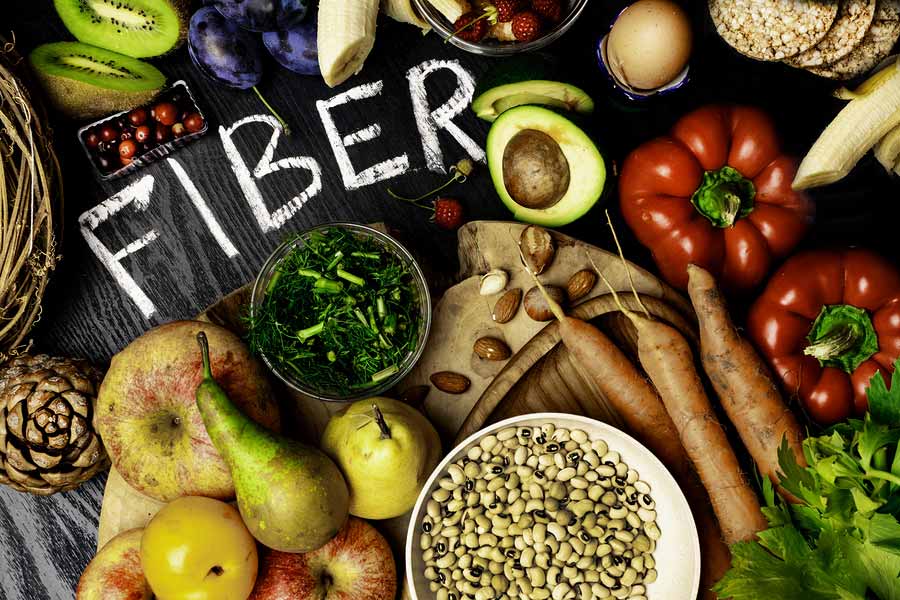Just as eating certain foods — such as those high in saturated fats — can increase harmful cholesterol levels, eating fiber-rich foods can actually help lower it. Scientists are still trying to determine the exact mechanism by which fiber lowers cholesterol, says Linda V. Van Horn, PhD, RD, a registered dietitian and professor of preventive medicine at Northwestern University’s Feinberg School of Medicine in Chicago.
What’s clear is that the cholesterol-controlling benefits are due to soluble fiber, one of two types of fiber. Soluble fiber is found in the flesh of fruit such as pears and apples, vegetables like peas, and whole grains, such as oats and barley. The second important type of fiber, insoluble fiber, is indigestible and also a necessary part of a healthy diet, but not for cholesterol-control reasons — it’s the kind that helps with digestion and regularity.
“High-fiber foods that contain soluble fiber appear to affect short-chain fatty acids in the bloodstream,” Van Horn says. “Soluble fiber has the same sort of potential benefit that something like a cholesterol-lowering (statin) drug would have, where it blocks the uptake of saturated fat or other harmful types of fat.” Soluble fiber may also help reduce insulin resistance, which seems to play a role in unhealthy cholesterol levels. “Fiber appears to have beneficial effects on both lipid and glucose metabolism,” Van Horn says. This can improve your overall lipid or “fat” profile, resulting in healthier cholesterol levels as well as lower triglyceride levels, another type of fat in the blood.
There are also practical reasons that foods with soluble fiber may help with managing cholesterol, Van Horn says: These foods tend to be lower in fat and more filling than foods without fiber. That means you’re more likely to stick to your diet and achieve a healthy weight with a diet rich in high-fiber foods.
Fiber to Lower Cholesterol: The Research
Research shows that simple daily changes for a diet to lower cholesterol can yield results within a matter of months. According to a controlled study of more than 300 adults published in the Nutrition Journal, people who ate 3 to 4 grams of cereal containing oat fiber daily for four weeks lowered their low-density lipoprotein (LDL) or “bad” cholesterol between about 4 and 6 percent. Also, this was the first study to show that including fiber in a diet for high cholesterol is helpful to people of different ethnicities.
More good news: Oats aren’t the only source of helpful fiber. A study of 160 postmenopausal women compared prune and dried apple consumption to find out how fruit fiber affects heart disease risk factors, such as cholesterol. Publishing in the Journal of the Academy of Nutrition and Dietetics, the research team reported that women who ate the equivalent of two dried apples daily saw an improvement in their cholesterol levels within three months. Participants’ LDL or “bad” cholesterol dropped by as much as 16 percent in the first three months of the study (although prunes were also helpful for lowering total cholesterol).
Fiber supplements may be helpful for other health concerns, such as better digestion, but when it comes to fiber to lower cholesterol, your best bet is a varied diet of whole foods containing fiber.













